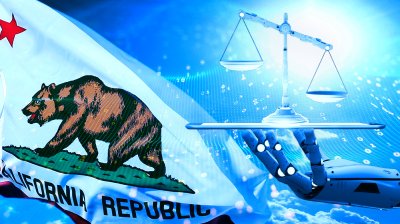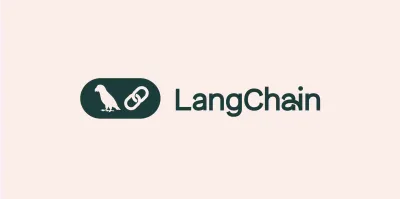California Poised to Become First State to Regulate AI Companion Chatbots
By: @devadigax

California is on the verge of becoming the first state in the nation to enact legislation specifically regulating AI companion chatbots. Senate Bill 243, currently making its way through the legislative process, aims to establish safety protocols for these increasingly popular digital companions and hold companies accountable for any failures in adhering to those standards. If passed, it would mark a significant step in addressing the burgeoning ethical and societal concerns surrounding the rapid advancement of artificial intelligence.
The bill's core focus is on establishing a framework for responsible AI companion development and deployment. It wouldn't outright ban these chatbots, but instead, it would mandate that companies implement robust safety measures to prevent harm. This could encompass various protocols, including measures to prevent the bots from generating harmful content, such as hate speech, misinformation, or self-harm suggestions. It might also mandate transparency about the chatbot's capabilities and limitations, ensuring users are aware they are interacting with an AI and understand its potential shortcomings.
The proposed legislation also addresses the issue of user vulnerability. AI companions are increasingly used by individuals struggling with loneliness, mental health issues, or social isolation. SB 243 implicitly acknowledges this vulnerability and seeks to protect users from potential exploitation or manipulation. The safety protocols could include measures to detect and prevent the chatbot from engaging in emotionally manipulative behaviors or exploiting users' vulnerabilities for commercial gain.
The legal accountability aspect of the bill is perhaps its most groundbreaking element. Currently, the legal framework surrounding AI is relatively underdeveloped, leaving companies with significant leeway in their development and deployment practices. SB 243 seeks to change this by establishing clear legal responsibilities for operators of AI companion chatbots. If a chatbot fails to meet the mandated safety standards and causes harm, the companies responsible could face legal repercussions. This could involve fines, lawsuits, or other penalties, depending on the severity of the harm caused.
The potential impact of SB 243 extends beyond California. If the bill becomes law, it could serve as a model for other states and even nations grappling with the regulatory challenges posed by AI. It could set a precedent for future legislation addressing AI safety and accountability, influencing the development of global standards for responsible AI deployment.
However, the bill's passage is not guaranteed. While there is growing concern about the potential harms of unregulated AI, there are also counterarguments. Some argue that overly stringent regulation could stifle innovation in the AI industry, hindering the development of potentially beneficial AI applications. Concerns have also been raised about the practical challenges of enforcing the regulations and defining what constitutes “harm” in the context of AI interactions.
The debate surrounding SB 243 highlights the complexities inherent in regulating rapidly evolving technologies. Balancing innovation with safety and consumer protection is a delicate act, requiring careful consideration of the potential benefits and risks. The passage of this bill, or a modified version thereof, would not only shape the future of AI companion chatbots in California but could also significantly influence the global conversation on responsible AI development and governance.
The ongoing discussion also touches upon the broader ethical considerations surrounding AI companions. Questions arise about the nature of human-AI relationships, the potential for emotional dependency on AI, and the blurring lines between human interaction and simulated interaction. SB 243, while focused on safety and accountability, implicitly raises these fundamental questions, pushing the conversation about the ethical implications of increasingly sophisticated AI technologies to the forefront of public discourse.
Ultimately, the success of SB 243 will depend not only on its passage but also on its effective implementation and enforcement. The clarity of the regulations, the resources dedicated to oversight, and the willingness of companies to comply will all be crucial factors in determining its impact. The eyes of the tech world are on California as this pioneering legislation moves closer to becoming law, setting a potential precedent for how governments worldwide might navigate the complexities of AI regulation in the years to come.
The bill's core focus is on establishing a framework for responsible AI companion development and deployment. It wouldn't outright ban these chatbots, but instead, it would mandate that companies implement robust safety measures to prevent harm. This could encompass various protocols, including measures to prevent the bots from generating harmful content, such as hate speech, misinformation, or self-harm suggestions. It might also mandate transparency about the chatbot's capabilities and limitations, ensuring users are aware they are interacting with an AI and understand its potential shortcomings.
The proposed legislation also addresses the issue of user vulnerability. AI companions are increasingly used by individuals struggling with loneliness, mental health issues, or social isolation. SB 243 implicitly acknowledges this vulnerability and seeks to protect users from potential exploitation or manipulation. The safety protocols could include measures to detect and prevent the chatbot from engaging in emotionally manipulative behaviors or exploiting users' vulnerabilities for commercial gain.
The legal accountability aspect of the bill is perhaps its most groundbreaking element. Currently, the legal framework surrounding AI is relatively underdeveloped, leaving companies with significant leeway in their development and deployment practices. SB 243 seeks to change this by establishing clear legal responsibilities for operators of AI companion chatbots. If a chatbot fails to meet the mandated safety standards and causes harm, the companies responsible could face legal repercussions. This could involve fines, lawsuits, or other penalties, depending on the severity of the harm caused.
The potential impact of SB 243 extends beyond California. If the bill becomes law, it could serve as a model for other states and even nations grappling with the regulatory challenges posed by AI. It could set a precedent for future legislation addressing AI safety and accountability, influencing the development of global standards for responsible AI deployment.
However, the bill's passage is not guaranteed. While there is growing concern about the potential harms of unregulated AI, there are also counterarguments. Some argue that overly stringent regulation could stifle innovation in the AI industry, hindering the development of potentially beneficial AI applications. Concerns have also been raised about the practical challenges of enforcing the regulations and defining what constitutes “harm” in the context of AI interactions.
The debate surrounding SB 243 highlights the complexities inherent in regulating rapidly evolving technologies. Balancing innovation with safety and consumer protection is a delicate act, requiring careful consideration of the potential benefits and risks. The passage of this bill, or a modified version thereof, would not only shape the future of AI companion chatbots in California but could also significantly influence the global conversation on responsible AI development and governance.
The ongoing discussion also touches upon the broader ethical considerations surrounding AI companions. Questions arise about the nature of human-AI relationships, the potential for emotional dependency on AI, and the blurring lines between human interaction and simulated interaction. SB 243, while focused on safety and accountability, implicitly raises these fundamental questions, pushing the conversation about the ethical implications of increasingly sophisticated AI technologies to the forefront of public discourse.
Ultimately, the success of SB 243 will depend not only on its passage but also on its effective implementation and enforcement. The clarity of the regulations, the resources dedicated to oversight, and the willingness of companies to comply will all be crucial factors in determining its impact. The eyes of the tech world are on California as this pioneering legislation moves closer to becoming law, setting a potential precedent for how governments worldwide might navigate the complexities of AI regulation in the years to come.
Comments
Related News

OpenAI Unveils ChatGPT Atlas: Your Browser Just Became Your Smartest AI Assistant
In a move poised to fundamentally reshape how we interact with the internet, OpenAI has officially launched ChatGPT Atlas, a gr...
@devadigax | 22 Oct 2025
In a move poised to fundamentally reshape how we interact with the internet, OpenAI has officially launched ChatGPT Atlas, a gr...
@devadigax | 22 Oct 2025

Netflix Doubles Down on Generative AI, Challenging Hollywood's Divide Over Creative Futures
In a move that underscores a growing chasm within the entertainment industry, streaming giant Netflix is reportedly going "all ...
@devadigax | 21 Oct 2025
In a move that underscores a growing chasm within the entertainment industry, streaming giant Netflix is reportedly going "all ...
@devadigax | 21 Oct 2025

AI Agent Pioneer LangChain Achieves Unicorn Status with $1.25 Billion Valuation
LangChain, the innovative open-source framework at the forefront of building AI agents, has officially joined the exclusive clu...
@devadigax | 21 Oct 2025
LangChain, the innovative open-source framework at the forefront of building AI agents, has officially joined the exclusive clu...
@devadigax | 21 Oct 2025

Meta Boots ChatGPT From WhatsApp: A Strategic Play for AI Dominance and Walled Gardens
In a significant move that reshapes the landscape of AI chatbot accessibility, OpenAI has officially confirmed that its popular...
@devadigax | 21 Oct 2025
In a significant move that reshapes the landscape of AI chatbot accessibility, OpenAI has officially confirmed that its popular...
@devadigax | 21 Oct 2025

Meta's New AI Peeks Into Your Camera Roll: The 'Shareworthy' Feature Raises Privacy Eyebrows
Meta, the parent company of Facebook, has rolled out a new, somewhat controversial artificial intelligence feature to its users...
@devadigax | 18 Oct 2025
Meta, the parent company of Facebook, has rolled out a new, somewhat controversial artificial intelligence feature to its users...
@devadigax | 18 Oct 2025
 AI Tool Buzz
AI Tool Buzz